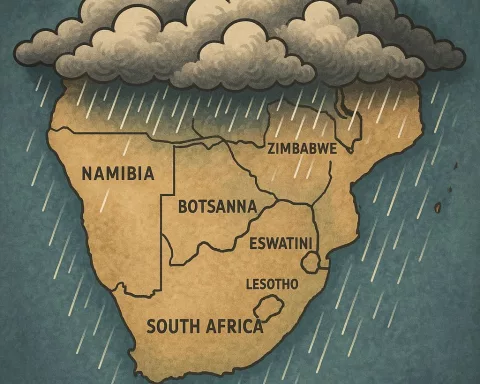Climate change is a pressing issue that affects communities worldwide. In response, the Mpungose community of Eshowe, located in Northern KwaZulu-Natal, South Africa, has developed a groundbreaking Manifesto to address the detrimental effects of climate change on their daily lives.
Collaborative Efforts
Inkosi Thandisizwe Mpungose led the initiative by collaborating with the Bezekela Community Foundation and ALL RISE – Attorneys for Climate and Environmental Justice. Together, they organized the country’s first community-based climate change workshop that convened over 40 delegates from various walks of life.
The Mpungose Community Climate Change Manifesto
The workshop aimed to discuss the impacts of climate change on the Mpungose community and explore possible mitigation measures. The outcome was the Mpungose Community Climate Change Manifesto, which outlines several responsibilities and actions to be taken by the community members.
Responsibilities and Actions
These responsibilities and actions include actively participating in conserving natural resources and wildlife, promoting indigenous knowledge, participating in global climate action, and raising awareness. The Manifesto also calls upon the South African government to create necessary policies and plans in line with the Integrated Development Plan Framework and the National Environmental Management Act.
Protecting Vulnerable Communities
Rural communities, such as the Mpungose community, are often disproportionately affected by climate change. Women and children-headed households are particularly vulnerable. Inkosi Thandisizwe Mpungose emphasizes the importance of these communities being actively involved in shaping their futures, starting with grassroots initiatives like this one.
Human Rights Element
Janice Tooley, Director and Founder of ALL RISE, asserts that protecting the environment, biodiversity, and water resources in addressing climate change issues requires a strong human rights element. The ability to participate in discussions and make decisions that impact one’s life and environment is a fundamental human right.
Inspiring Action
The Mpungose Community Climate Change Manifesto serves as a shining example of a community-driven response to climate change in South Africa. The organizers hope that the Manifesto will inspire other communities to read, implement, and adapt similar policies within their own contexts.
Collaborative Partnership
This project exemplifies the significance of collaboration in addressing climate change and was made possible through the partnership of ALL RISE – Attorneys for Climate and Environmental Justice, Bekezela Community Foundation, and the Southern Africa Trust. The Mpungose Climate Change Manifesto is accessible to anyone interested in learning more and potentially adopting similar measures in their locale.












